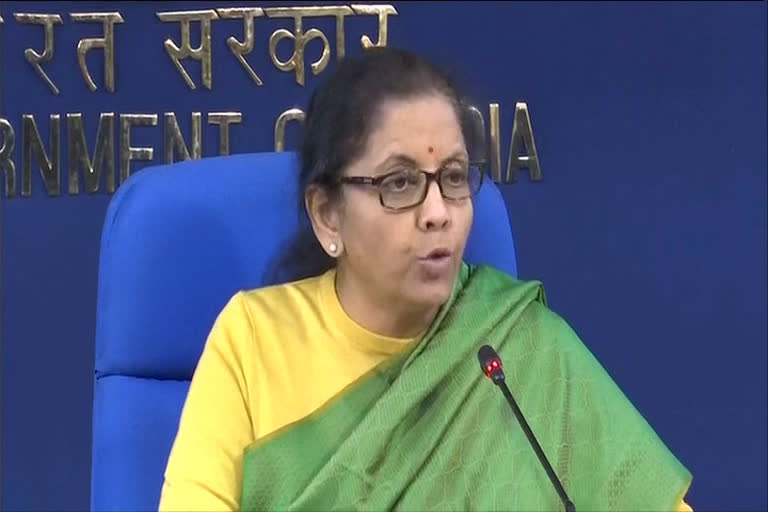New Delhi: After exchange traded fund for equities, the Union Cabinet on Wednesday approved the launch of exchange traded fund (ETF) for bonds to create an additional source of funding for Central Public Sector Enterprises (CPSEs) and state-owned financial institutions.
The New Fund Offer (NFO) of this ETF is expected be to launched during December itself.
Bharat Bond ETF would be the first corporate bond ETF in the country.
"With the creation and launch of umbrella ETF we hope to diversify investor base," Finance Minister Nirmala Sitharaman told reporters after the Cabinet headed by Prime Minister Narendra Modi gave in-principle approval to bond ETF.
It will help deepen bond market as was announced in the Budget, she said.
ETF will be a basket of bonds issued by state firms or any government organisation, and will be tradable on exchange, she said, adding that the unit size will be of Rs 1,000, allowing small investors to invest.
Each ETF will have fixed maturity date and will track underlying index on risk replication basis, she said, adding that for now it will have two maturity series -- 3 and 10 years -- with a low cost of 0.0005 per cent.
Speaking to reporters, Department of Investment and Public Asset Management (DIPAM) secretary Tuhin Kanta Pandey said, "we are hoping to launch the NPO during the month".
Read more:Services output expands for first time in 3 months: Report
The ETF will be launched every six months, he said, adding that the index will be constructed by independent index provider –- National Sock Exchange.
The finance minister said, "Bond ETF will provide safety (underlying bonds are issued by CPSEs and other government owned entities), liquidity (tradability on exchange) and predictable tax efficient returns (target maturity structure)."
It will also provide access to retail investors to invest in bonds with smaller amount, as low as Rs 1,000, thereby providing easy and low-cost access to bond markets, she said.
This will increase participation of retail investors who are currently not participating in bond markets due to liquidity and accessibility constraints, she said.
Bond ETFs are taxed with the benefit of indexation which significantly reduces the tax on capital gains for investor, she said.
With the increase in demand for their bonds, she said, the issuers may be able to borrow at reduced cost, thereby reducing their cost of borrowing over a period of time.
Further, the minister said bond ETF trading on the exchange will help in better price discovery of the underlying bonds.
Since a broad debt calendar to assess the borrowing needs of the CPSEs would be prepared and approved each year, it would inculcate borrowing discipline in CPSEs at least to the extent of this investment, she added.
She emphasised that this is expected to eventually increase the size of bond ETFs in India, leading to achieving key objectives at a larger scale -- deepening bond markets, enhancing retail participation and reducing borrowing costs.
Commenting on the approval to bond ETFs, Edelweiss Asset Management Company CEO Radhika Gupta said, "Bharat Bond ETF will be a diversified basket of public sector company bonds aimed at providing easy access for retail investors to invest in these bonds and bringing liquidity in the corporate bond market. It will also help these companies with new source of funding."
"Initially, the ETF will have two maturities 3 years and 10 years and will invest in bonds of similar maturities," she added.



